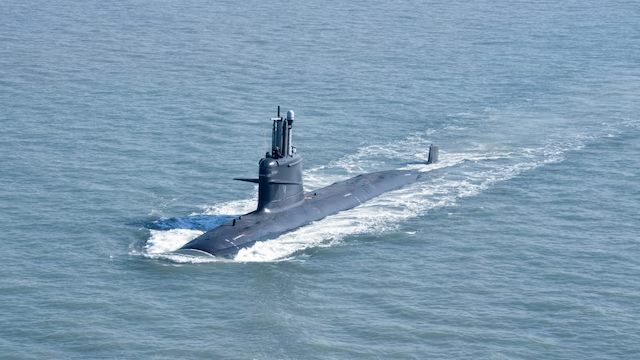On Wednesday, the Indian Navy successfully tested the nuclear-capable K-4 ballistic missile from the newly inducted nuclear submarine INS Arighaat, significantly increasing the country’s defense capabilities. According to defense sources, the test was conducted on November 27, and the results are still under analysis. The missile was fired from the Bay of Bengal, and it has proved that it can travel 3,500 kilometers. Details of the test are being reviewed from the performance data and will be briefed to top military and political leaders once the analysis is complete.
INS Arighaat, which was accepted into the Indian Navy in August this year at the Ship Building Centre, Vishakhapatnam, was used for this experiment. The submarine is handled by the Strategic Forces Command as a part of India’s burgeoning nuclear deterrence capability. Sources said that before conducting the full-range test, DRDO had conducted extensive testing to ensure that the missile was reliable when launched from underwater platforms.
“The Indian Navy yesterday carried out the test firing of the 3,500 Km K-4 ballistic missile from the newly-inducted nuclear submarine INS Arighaat. The test results are being analysed. The Strategic Forces Command operates the boat,” ANI said, citing a defence source.
This test is regarded as a critical step in strengthening India’s second-strike capacity. In simple terms, second-strike capacity is the ability of any military force to retaliate with nuclear weapons after suffering a nuclear attack.
This is a crucial area for strategic deterrence because the Indian Navy has two ballistic missile-launching nuclear submarines: INS Arihant and INS Arighaat. A third nuclear submarine has already been launched; it is likely to be added to the fleet next year.
The successful testing of the K-4 missile from INS Arighaat heralds a major landmark for India in its military and strategic growth. The Navy is prepared to test the missile system one more time to ensure that its operating capabilities are flawless. This K-4 missile would undoubtedly strengthen India’s security posture since it will complement the nation’s nuclear policy and serve as a credible deterrent in the event of possible threats.
























